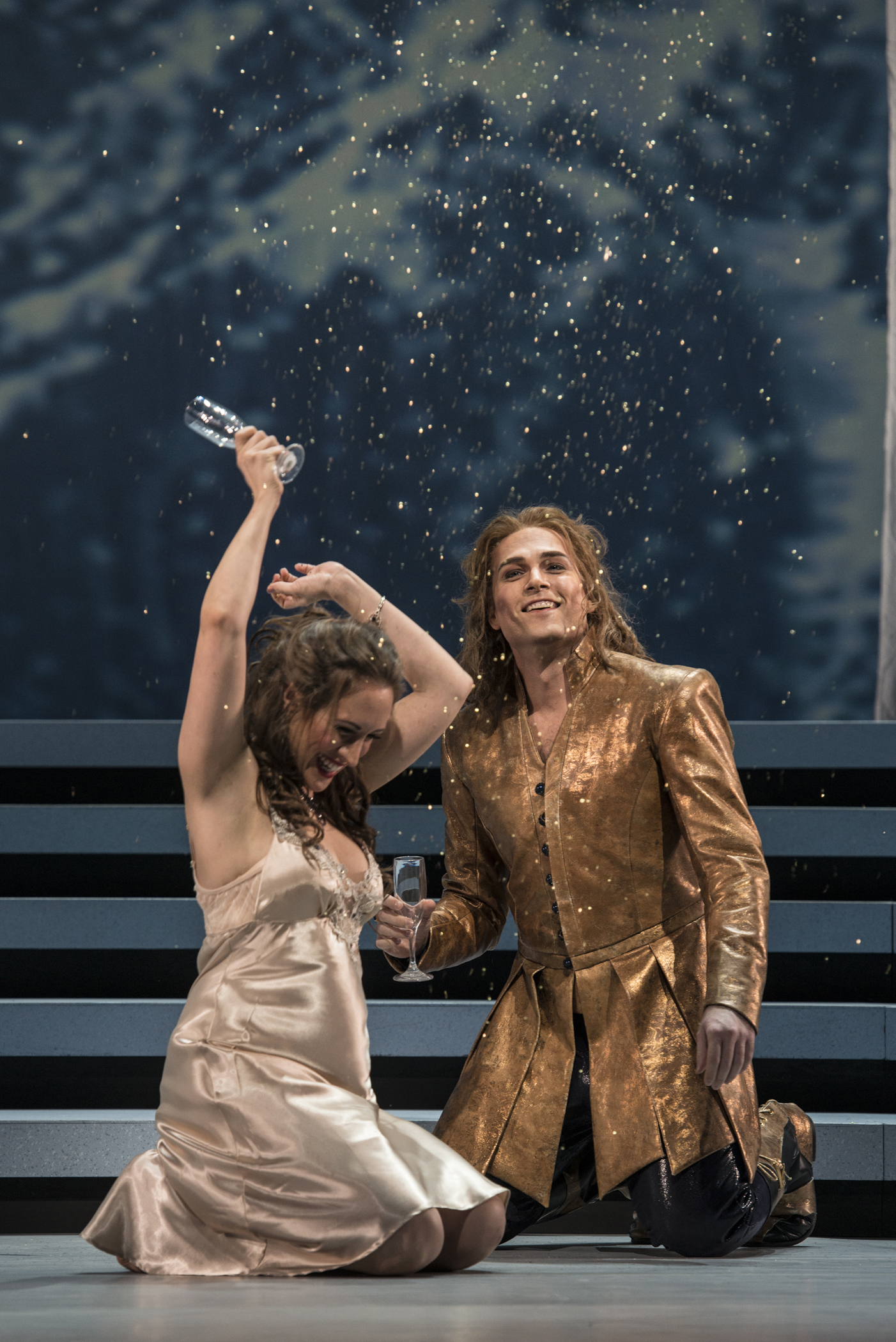The spectacle is what’s been hyped about Seattle Opera’s production of Handel’s Semele, but the music is why you shouldn’t miss it. In the title role of a mortal woman whose crush on Jupiter leads to pride, ambition, and a fiery end, Brenda Rae (in the Wednesday/Saturday cast) sounds glorious in both her dreamy slow arias and her acrobatic showpieces. In “Oh, sleep, why dost thou leave me?” and “My racking thoughts,” the orchestra, led by Gary Thor Wedow, is pared down to just a few instruments; with Rae’s sweetness of tone, the result is an enrapturing chamber-music intimacy I wouldn’t have thought possible in a hall McCaw’s size. And her allegros—especially “Myself I shall adore,” likely the most preposterously ornate aria Seattle Opera’s ever presented—will leave you dazzled (and wondering when and how Rae breathes). But the key to coloratura is to make it expressive, not just a circus act. One magical example comes soon after the opera opens, while Semele’s still betrothed to Athamas and wants out. She beseeches Jupiter for help—“O Jove! in pity teach me which to choose/Incline me to comply, or help me to refuse!”—but Rae’s seductive vocal flight on those last four words makes it clear she’s considerably less conflicted about the choice than she pretends.
Similarly, Stephanie Blythe brilliantly handles the extremes of her two roles: bold and resonant as the jealous Juno (even drawing a spontaneous ripple of applause for her imperious lowest notes), and reserved yet deeply affecting as Semele’s sister Ino—for example, dialing it down to pair beautifully with the lighter voice of countertenor Randall Scotting as Athamas in their duet. (If Blythe had sung at full force here, Semele wouldn’t have been the only one in the opera reduced to a pile of ashes.) Furthermore, she expertly plays these opposites off each other when Juno disguises herself as Ino to manipulate Semele into making her fatal request. Also, Seattle Opera-goers who heard Blythe’s Amneris or Fricka, but missed her in the title role of Rossini’s The Italian Girl in Algiers, may not know how funny she can be, but her scene with Amanda Forsythe as Juno’s messenger Iris drew well-earned laughs. (In an interesting reversal, in this production it’s the gods who provide the comedy; normally in baroque opera, seriousness is a class marker, with comedy reserved for the lower orders and gravity the province of the nobility.)
John Del Carlo’s gruff bass works well as Cadmus, Semele’s father, and even better as Somnus, god of sleep. With rapid passagework as daunting as the ladies’, Handel makes the lead male role, Jupiter, rather a thankless task; Alek Shrader’s hard work here was admirable but audible.
Erhard Rom’s set is cool, airy, severe—inspired, from the look of it, by the PACCAR Pavilion at the Olympic Sculpture Garden, or maybe the Gates Foundation building, or, really, anything built in Seattle so far this century. Projections on screens large and small add visual variety. Not all of these work; no face looks good blown up to billboard size, and one image, a pink rose against a screen-saver backdrop of drifting clouds, resembles nothing so much as a telenovela’s opening credits (Amores de dioses, maybe, or Ambicion mortal ).
gborchert@seattleweekly.com
SEMELE McCaw Hall, 321 Mercer St. (Seattle Center), 389-7676, seattleopera.org. $25 and up. 7:30 p.m. Wed., Fri., Sat. Ends March 7.







